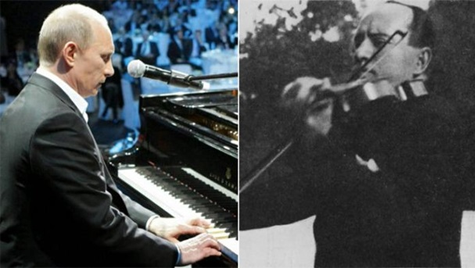The Russian futurologist says that what happened across Europe in the 1930s is likely to be repeated given the depth of the current crisis. Then, Russia was insulated from that because of communism; but now, it is likely to be very much part of this trend.
His prediction is particularly interesting because Pereslegin, unlike many who issue such warnings, is based on a careful discussion of the events of the 1930s, their analysis by Soviet ideologists, and the parallels he sees and draws between both and recent developments in the Russian Federation.
After the 1929 New York stock market collapse triggered the depression, he points out, the economies of most European countries fell 28 to 30 percent, roughly the same declines they are now Russia is experiencing today. And what is more alarming is that there is no sign that such declines won’t become even worse before they get better.
Now, as was the case then, Pereslegin says, this has put the middle classes in an impossible position. Their incomes and status are falling, and they want a strong hand to rule over them but also some ability to legitimate the leadership and affect its decisions by plebiscites and other feedback loops.
In the Soviet Komintern, there was a good understanding of both the fact that “fascism was an entirely natural response” to what was happening and that fascism should not be dismissed as just another dictatorship. Instead, in the view of that movement’s ideologues, it was a state of a new type designed to respond to a deep crisis.
In Pereslegin’s view, Russia is moving in the same direction now, a direction that will allow it to protect itself from the further destruction of the country’s “cultural code” that has been ongoing since the end of Soviet times. While he does not say so in so many words, it is clear that he believes that fascism is necessary for Russia’s salvation.
Unfortunately, many others think the same way; and some are close enough to the apex of power to be able to make their visions a reality. At the same time, however, they may be constrained either by their own reflections about what happened to Mussolini – or by others who see that he couldn’t solve his own country’s underlying problems.
Read more:
- Pro-Kremlin media attempts to make fascism politically correct
- Putin ‘has caught up and surpassed Mussolini’
- Putin follows Hitler and Stalin in seeking to repress Jehovah’s witnesses
- Fascism exploited and distorted in Putin’s Russia for propaganda’s sake
- Portnikov: Is Crimea Ukraine’s Sudetenland?
- Putin’s ‘Russian Spring’ idea was invented by Russian fascists in the 1920s
- Putin making the same mistake Hitler did, Piontkovsky says …
- Like Stalin, Putin makes fascists feel ‘right at home’ in his ‘Reich’
- Igor Eidman: Putin became a fascist-style leader in mid-2014
- Hitler’s anschluss and Putin’s: Similarities and differences











